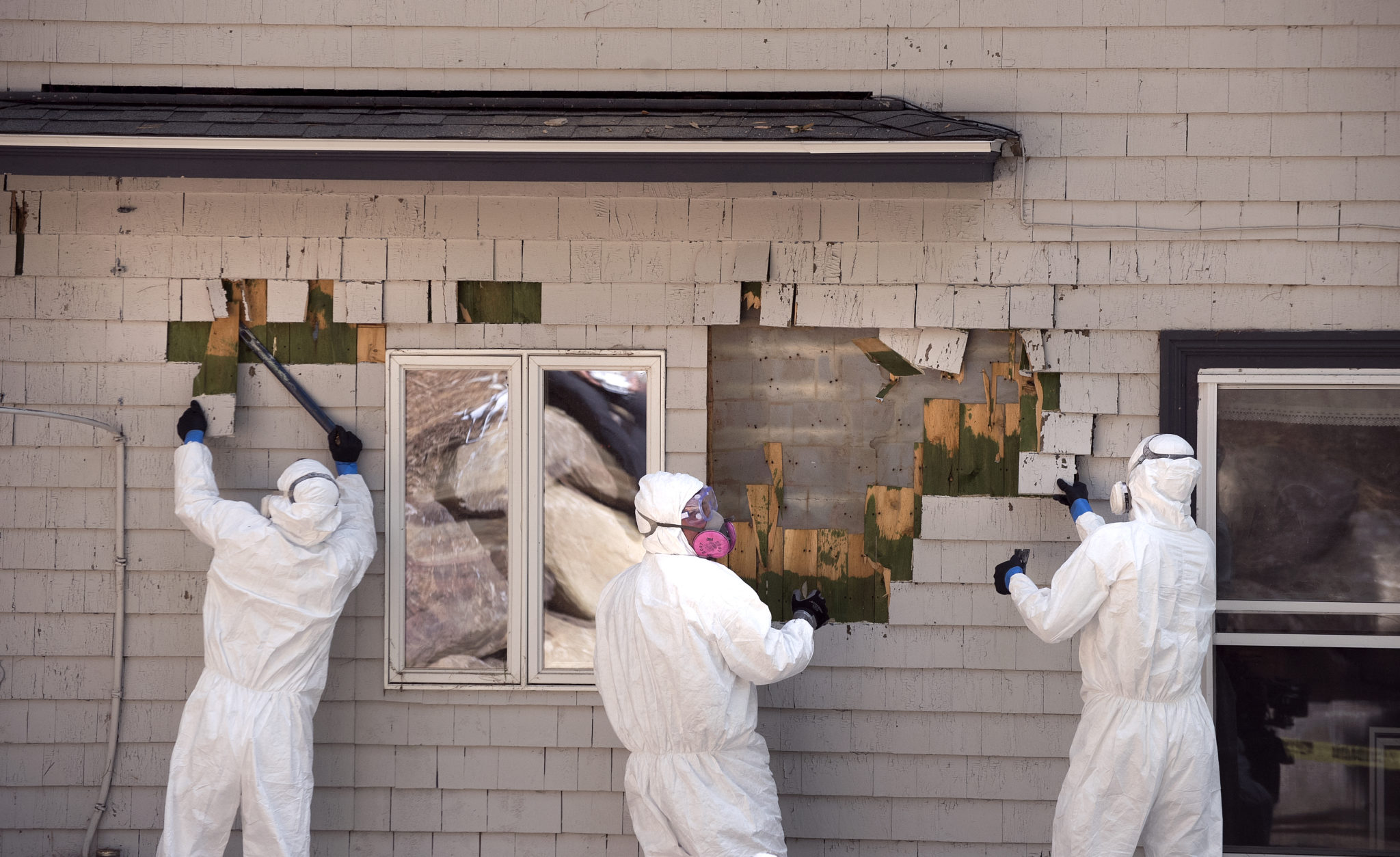For homeowners, lead hazards can be frightening. Here are some tips to help

People who live in older houses who are worried about lead hazards and poisoning should not feel hopeless, according to Maine State Toxicologist Andrew Smith.
There are steps to take that can sharply decrease the dangers, don’t necessarily require pricey remediation and are attainable for everyone, he said recently.
“The issue is when the paint is chipping or there are abrasions,” Smith said. “But there’s a lot of pre-1950s housing in this state. There are a lot of kids in that housing. It’s entirely possible to live in a house with lead paint safely.”
According to the Maine Center for Disease Control and Prevention, lead paint can be found in houses and buildings built before 1978, when lead-based house paint was banned in the United States. But it is most commonly found in homes built before 1950. It doesn’t take much dust from lead paint to seriously affect a child’s growth and development, and that’s why the state is aiming to provide free lead dust test kits and other information to all Mainers who want it.
One of Smith’s goals is to get all children in Maine to take the risk assessment for lead poisoning. (A sample question: “Does your child spend more than 10 hours per week in a house built before 1950?”)
“If a child is living in a newer home, the reason to test [for lead] is pretty low,” he said. “You don’t want to be needlessly testing a child when they’re at minimal risk.”
But children whose assessments show they are at risk of lead poisoning should then be screened for elevated blood levels, a test that now can happen in a regular wellness visit with their pediatrician. And according to state law, all children who participate in MaineCare, the free or low-cost health insurance for families with children and pregnant women, must be tested for lead at both 1 and 2 years of age.
“We’re not attaining that,” Smith said of the goal numbers, adding that some communities have made big improvements. “A great success story to look at is the city of Lewiston, which now tests 80 percent of children 1 year of age. It can be done.”
For families of children with elevated lead levels, the CDC does not leave them to their own devices. Smith said the agency offers to inspect the home for lead and then works on ways to help the families address the hazards. Some ideas to keep children safe from lead at home include:
— Regularly clean floors, windowsills and tabletops with a wet mop or cloth;
— Use a vacuum with a HEPA filter that can remove extremely fine lead dust particles;
— Always wash a child’s hands after play, before meals and before naps and bedtime;
— Frequently wipe down toys, clean stuffed animals and wash bottles and pacifiers;
— Routinely check painted windows, doors and floors for peeling or chipping paint.
For people who are renovating or repairing a home, activities which are associated with “a lot of poisonings,” Smith said, they can:
— Learn how to control and contain lead dust before starting the job;
— Keep children, pregnant women and pets away from work areas;
— Take a shower and change your work clothes before playing with or handling a child;
— Wash work clothes separately from family laundry.
“There are things people can do on their own,” Smith said.
Also, MaineHousing, the independent state agency that helps low- and moderate-income Mainers, offers a lead hazard reduction program that provides multi-family and single-family loans and grants to eligible households. For more information about the program, visit the website mainehousing.org/programs-services/HomeImprovement/homeimprovementdetail/LeadHazardControl.
To order a free lead dust kit, and also find information about how to properly use it, visit the website maine.gov/healthyhomes. Those with questions can call the Maine Healthy Homes & Lead Poisoning Prevention Program at 1-866-292-3474.
